-
I still have an SSD full of music, that I own, and I too will miss iTunes when it is gone. I even have baroque ways of syncing MP3s to my Android phone.
More importantly, I too have long felt the reality of Inbox Infinity and lists that never end.
Even more importantly, para 11 is chefs-kiss-emoji.
-
Dan's 2017 lists begin; always a good set of records to dive into.
-
An excellent post by Priest on lists, and canons, and why you sometimes share your own. Also, strikingly, so much of this is the sf I have grown to love as an adult – the Le Guin, the Pohl, the Dick, and especially the Roberts. You make the list to stop it becoming sacred.
Games of the Year: 2011 edition
06 January 2012
This year, my Games of the Year got rolled into Kill Screen’s end-of-year countdown. It’s a fine list.
Kill Screen have also put up the individual participants ballot, and you can read mine here. I also wrote some notes about the list of ten:
Here’s my secret: I’m shamelessly mainstream. When I get home from a day at a desk, designing or programming, I like to play games on my sofa. And so: lots of major console releases there, from the advanced hiking simulator that is Skyrim to the elaborate team sport (disguised as a military shooter) that is Battlefield 3. It’s not all AAA-ware, though. The fact that games like Bastion and From Dust saw release on major platforms makes me enormously happy, and they deserve their place.
What binds all these titles together? Perhaps it’s just about wonderful worlds to escape to. Wonderful for their aesthetics: the cold mountains of Tamriel; the endless greyboxes of decades of Aperture Science; the silhouetted landscapes of Outland; the spectacular 17th century Mars of Jamestown; the steely glowing cyberpunk of Frozen Synapse; the rich, detailed decay of Arkham City.
Flip that around, though, because they’re also wonderful systems to get lost in: Skyrim‘s bottomless, endlessly free systems; the careful addition of gels to the Portal formula; the binary-coloured bullet-hell of Outland; the marvellous Vaunt mechanic in Jamestown; the perfection of turn-based (and play-by-mail) strategy in Frozen Synapse; the bottomless gadget-belt and inventive environment of Arkham City. At heart, I’m an escapist, and I escape into beautiful worlds and deep mechanics equally.
Ten was hard to pick, and I wanted to represent some potentially overlooked gems (oh, Outland) as well as some obviously great mainstream games. Two games slipped off the list for me: Deus Ex: Human Revolution just slipped off, but was a surprisingly lovely way to spend the middle part of the year, and Crysis (in its re-released, updated downloadable XBox and PSN port) wasn’t eligible for inclusion as it was a remake. It was, however, definitely one of the ten best games I played last year, and the Games on Demand version is worth your time, if only for the bottomless tropical sandbox of fun it offers in its early stages.
Go read my list, and, indeed, the whole Kill Screen feature.
-
"Books become clouds, raining events and built forms onto the city." This is marvellous
-
Simon Reynolds' list of records from 2010. It is long and deserves returning to, which, at some point, I shall.
-
"…in the end, adulthood isn't a single decision you make, but a long series of decisions you make every day for the rest of your life. And the best reason to grow up isn't because it is expected or required, but because it means moving forwards. Because while it may also involve incredibly tedious things like mortgages and car payments, growing up is a natural function of seeking a life that is more dynamic than static, of choosing ambition and hope over avoidance and fear, of wanting to know who you're going to be and not just who you were, even if that takes you away from the things you used to love." A lovely reading of Scott Pilgrim #6.
-
"The following is a list of 99 free games (in no particular order) that I’ve enjoyed this calendar year, nearly all of which have been released in 2009 or very late in 2008. So why don’t you take a break from funding corporate overlords and see just what a feast there is out there in the wide world below the big ticket level—all you can lose, really, is just a little bit of time." Turns out I've played a lot of these. Many are good; some are excellent.
-
"It is not hard to cut a bagel into two equal halves which are linked like two links of a chain." And now you know how.
-
"The game is very impressive, and gives some great experiences. For example, a friend at work solves most problems with a jetpack and a lasso, instead of a grappling gun. In his heart he's a cowboy, and in mine I'm Batman." A comment on Brandon's year-end post about the uncanny valley of Scribblenauts; this line really, really stood out for me.
-
"Sides chosen as Demo-Soldier tension mounts". I love Valve. I love them so very much. I reckon TF2 is the unsung hero of their games, frankly – and their continued dedication to it is just marvellous.
-
"But 2009 was about a lot more than that handful that we knew would top their respective Metacritic charts (and retail sales lists) six to nine months before their release date, and… this list for Boing Boing will instead focus on the games that left their own strong mark on the year, just, sadly, a mark that in most cases went mostly overlooked." Brandon kicks off his end-of-year list. It is good!
-
"I did a set of four walks in Austria; two long ones, two short ones. I did some "daystreaming" where using bits of technology I was updating my location, status and pictures as I walked." Ambient information gathering, whilst taking in the outdoors, and all for charity. Lovely.
-
And it just worked first time. Awesome!
-
"The list is the origin of culture. It's part of the history of art and literature. What does culture want? To make infinity comprehensible. It also wants to create order — not always, but often. And how, as a human being, does one face infinity? How does one attempt to grasp the incomprehensible? Through lists, through catalogs, through collections in museums and through encyclopedias and dictionaries." Eco on lists.
-
"Today, the UK government's Department For Transport unveils a new browser-based MMOG, created by New York-based developer Area/Code. Designed for early teenagers to learn principles of traffic safety, it's probably the largest 'serious games' project ever to be created for the UK. Code Of Everand is the result of over two years of work with the Department For Transport by Area/Code principals and designers Frank Lantz and Kevin Slavin, not only because of its size and ambition, but also because of the complexities of developing it for a government body… We spoke to Lantz, Slavin and Simon Williams, who led the project at Carat, the Department For Transport's media agency, about what Code Of Everand is, how they pulled it off, and why they think it could prove that games can be a powerful platform for learning." Edge interview.
-
Wonderful, wonderful interview with Eggleston. So much care and attention in the work and the way he describes it; so many lovely illustrations. The "color scripts" alone are great, but really, it's all worth your time.
-
John Peel's Festive 50s the Spotify playlist edition. Obviously, there are holes, but nice that it exists.
-
"Because the ability to be in a city and to see through it is a superpower, and it's how maps should work." The maps of New York Jack's been working on for a while are now available to buy. Having seen them in the flesh, I can tell you they're properly beautiful.
-
"Well, ok there probably aren’t that many to give away, and this isn’t a Government mandate or anything, but Sony Europe are giving away free woolen Sackboy toys to Happy Gadders in the UK and Ireland – yay!" Want. Emailed!
Favourite Games of 2008
24 December 2008
It’s the end of the year, and that means time for lists. My books and albums lists are forthcoming – hopefully tonight or tomorrow – but in the meantime, I thought I’d kick off with ten of my favourite games of the past year.
There’s lots missing here, mainly owing to the fact I haven’t finished a lot of recent titles or given them the time they’ve deserved. What this is, though, is a good summary of what the gaming year felt like to me; ten games I enjoyed a great deal, and that I would recommend in a heartbeat to anyone not sure where to begin with 2008.
And so, in no particular order:
Far Cry 2
(Xbox 360, PS3, PC)
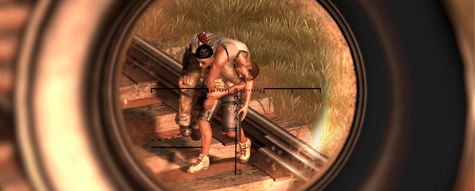
I have written enough about this already, but suffice to say: it sunk its teeth into me, after the initial hump I couldn’t play anything else, and at the end, it left me unable to play anything else for a while. Spectacularly beautiful, too.
Trism
(iPhone)
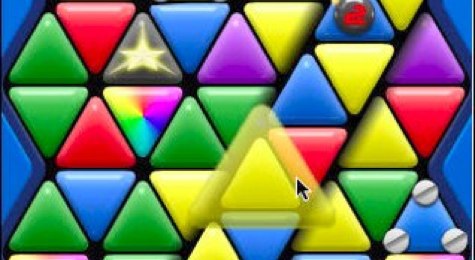
Trism began as an app for the jailbroken iPhone; it quickly made the transition to the official App Store platform when that opened up, and it has sold hundreds of thousands of dollars of copies since then, giving Demiforce a fantastic start to their company. And with good reason: it’s a great piece of game design, easy to learn, and hard to master. It also makes brilliant use of not only the iPhone’s capacitive touch screen, but also its tilt sensor. It’s a very pure puzzling experience, and I’ve already sunk many hours into it; it suits the pick-up/put-down rhythm of travel and play on-the-move idaelly. If you have an iPhone or iPod touch, this really is a no-brainer.
Geometry Wars Retro Evolved 2
(Xbox 360)

It’s still one of the best games on Live Arcade. It’s also still one of the best asynchronous multiplayer games you can play. Making your friends high scores the default high score table gives it a great competitive streak and really contextualises your performance: nothing’s more frustrating than having emailed a friend to say “hah, beat your high score” only to receive an response five minutes later informing you that the ball is firmly back in your court.
Adding variety to the original formula are the six game modes, slowly unlocked over time. They may all be variants on a theme, but they all still demand unique skills and become games in their own right: turning the Pacifism achievement from the first game into a mode in its own right was a great move.
Beautiful in high-def, easily explained to anyone who’s played a videogame in their life, it’s by turns accessible and challenging, and an essential purchase for new 360 players. Also, its social scoreboards give it great longevity, and prove what I already know: I’m nearly, but not quite, at the bottom of the pack when it comes to motor control. As long as I’m not last…
Braid
(Xbox 360)
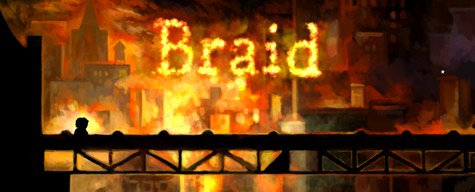
If there’s a measures of Braid’s success, it’s not to be found in its sales or metacritic scores, but in the sheer volume of verbiage devoted to it in the blogs, forums, and magazines of the gaming world. Thousands of words, all expended on the game, on the hype, and on what the hell it all means.
It wouldn’t have got that discussion if it wasn’t in some way good, and it really is: beautiful, challenging, and proof of the things that only games can do. It embraces game-native storytelling, wrapping its meaning tightly around its mechanics, and tells its tale through challenging, timeless puzzles and David Hellman‘s incredible artwork.
Perhaps it is a little pretentious; perhaps the writing is weak. Regardless of those facts, it’s exciting to see a game like this getting such a major launch on a mainstream, living-room platform, and as an artefact to push forward the casual – as well as professional – criticism of games, it’s a great starting point.
GRID
(Xbox 360, PS3, PC)

I always forget how much I like racing games. GRID is a very, very fine take on the racer. It’s beautiful, it’s fast, and it’s totally stripped down. GRID demonstrated that Codemasters really understood what making a game “cinematic” might look like: you condense it down into tight, exciting drama. So races take place over two-to-five laps, and in that time the AI will give you as good a catfight as any “realistic” simulator might over an hour. The rewind-time mechanic, as well as being wonderful to watch, removes the traditional racing-game reliance on the “restart” option; giving the game a pre-credits race, not to mention an ongoing narrative of running a team only helps with the Days of Thunder feel. Mapping Le Mans to a twenty-four minute endurance race makes it both exciting and endurable.
And, of course, it’s very pretty and fast as hell. The open-wheel racing is some of the most exciting driving games have to offer, in particular. The drift tournaments are weak, but stick to the touring cars, touge and open-wheel and you’ve got a hell of a game. The icing on the cake is the beautiful, free-floating typography. Solid, and surprisingly good.
Grand Theft Auto IV
(Xbox 360, PS3, PC)
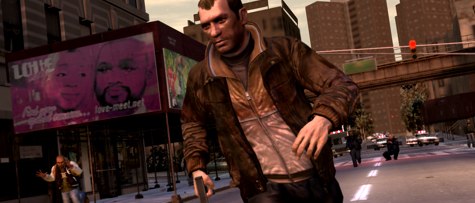
It’s on everybody else’s list, and I can’t really deny it: it’s a wonderful environment, and a staggering achievement. It’s not as smart as it likes, and it occasionally misfires but it delivers moments by the dozen. Shame the pacing of the islands feels wrong – after the majesty of Three Leaf Clover, being dumped in the New Jersey analogue is a bit underwhelming.
Also: multiplayer, with the right gang of people, is a total hoot. Whilst not the runaway online success that might have been hoped for, if you can get eight to sixteen friends online together, Cops and Crooks or Turf War will bring the fun pretty fast.
God of War: Chains of Olympus
(PSP)
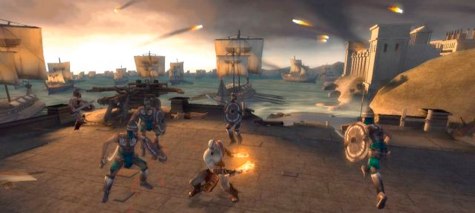
Well, it came out this year in the UK. I played this sitting by a roaring log fire, having spent my days clambering around the Lake District. It is not the greatest game of the year by a long stretch. It is, however, a wonderfully crafted experience: short it may be, but it’s put together almost perfectly: fantastic environments that barely repeat, thrilling combat that’s not too difficult, and one of the most striking in-game sequences I’ve played this year. It helps that the lack of direct camera control translates perfectly to the single-stick PSP. On top of all that, it looks almost as good as the PS2 versions – it’s a remarkable feat of engineering. I had a lot of fun with this, and if you own Sony’s much-unloved portable, you owe yourself to play this.
Left 4 Dead
(Xbox 360, PC)
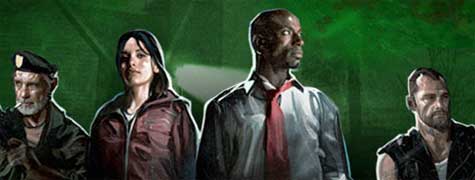
Gerard Way asked if it was any good, and the answer is yes, Gerard, it is. It’s bloody brilliant, although with the obvious caveat that it gets better with friends. Co-op gaming has slowly seen a slew of support and innovation in the past two to three years, and Left 4 Dead represents one particular pinnacle of that: an experience designed ground-up to be played not only co-operatively, but with real friends.
It’s not about team-mates, it’s about mates; how far would you go to save your friends from a Smoker? Quite far, as it turns out; I’ve noticed that in various pick-up groups, if I have to pick between someone I know in real life and someone I don’t, I’ll go with my friends first. To see such an unashamedly co-op experience – and one that could be described as reasonably hardcore if you hadn’t tried it – achieve such a level of mainstream success is very heartening. I put it down to the fact that Valve are such a talented gang of people, and so fastidious in their process. If you’ve not played through the director’s commentary, you owe it to yourself to do so, if only to understand that nothing in the final product is the result of chance.
Also: it’s great to see a game that puts the mechanic, indeed, the core technology, that really makes it – the AI – so far front-and-center. Personifying it as the AI Director was the stroke of genius that not only made players aware of it, but gave them someone to blame when they all died. Again.
World of Goo
(Mac, PC, Wii)
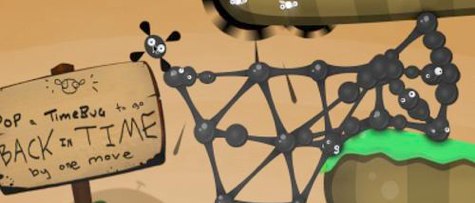
There are two reasons, I think, that World of Goo has captured a lot of people’s hearts this year. One is the game itself: the wonderful art; the delightful soundtrack; the just-one-more-go gameplay that carefully teaches you everything to know whilst keeping the challenge just high enough. But the other is the game’s mythology: 2D Boy, two guys working out of coffee shops for a year, giving up on the traditional industry to make the game they really wanted to. It’s the story we all wanted to believe in. The fact that both elements are so great is the real magic of World of Goo: risking it all, living the indie dream, really did lead to a wonderful game.
Gravitation
(Mac, PC, Linux)
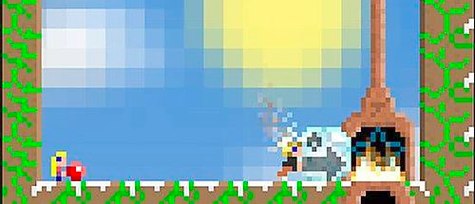
I like this more than Rohrer’s previous Passage. It’s a small, simple game, available for most home desktop platforms (Windows/OSX/Linux), about “mania, melancholia, and the creative process”. To say any more is to rob it of its impact. Once I worked out what you have to do to progress, I played on with a huge lump in my throat. To be heartbroken by a game this slight, this simple, in its 100 square pixel area, is quite something, and Rohrer makes games like no-one else.